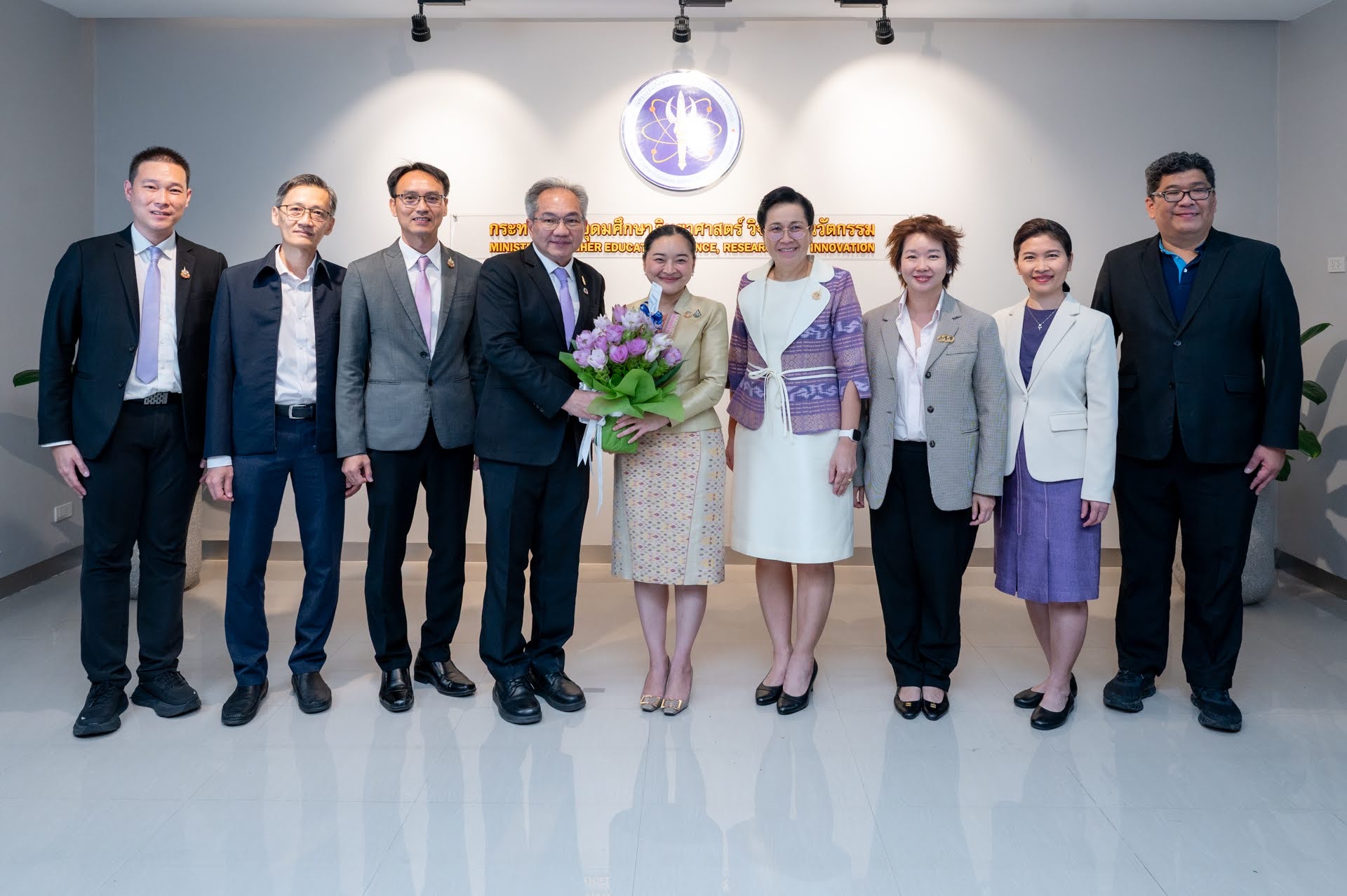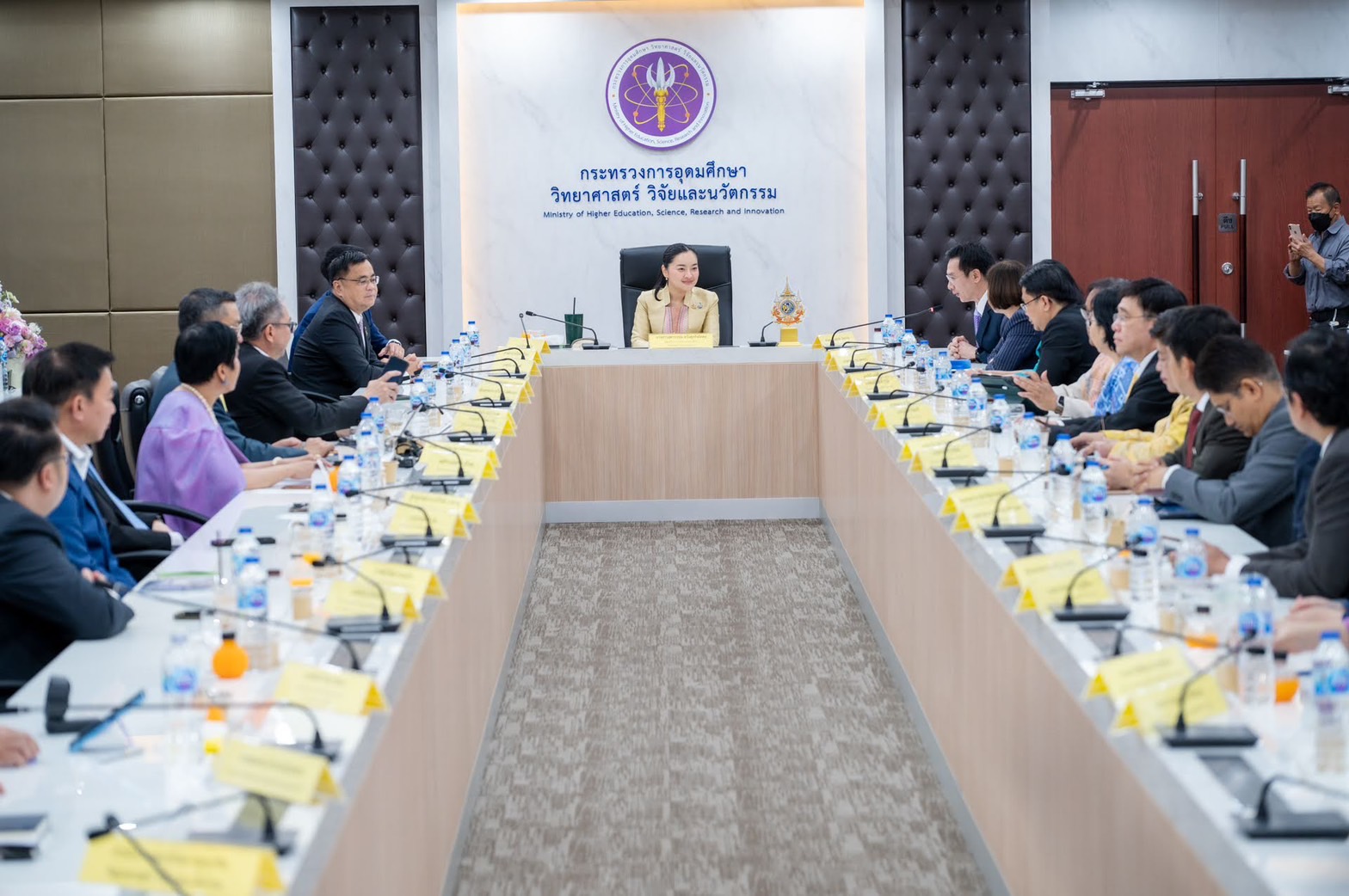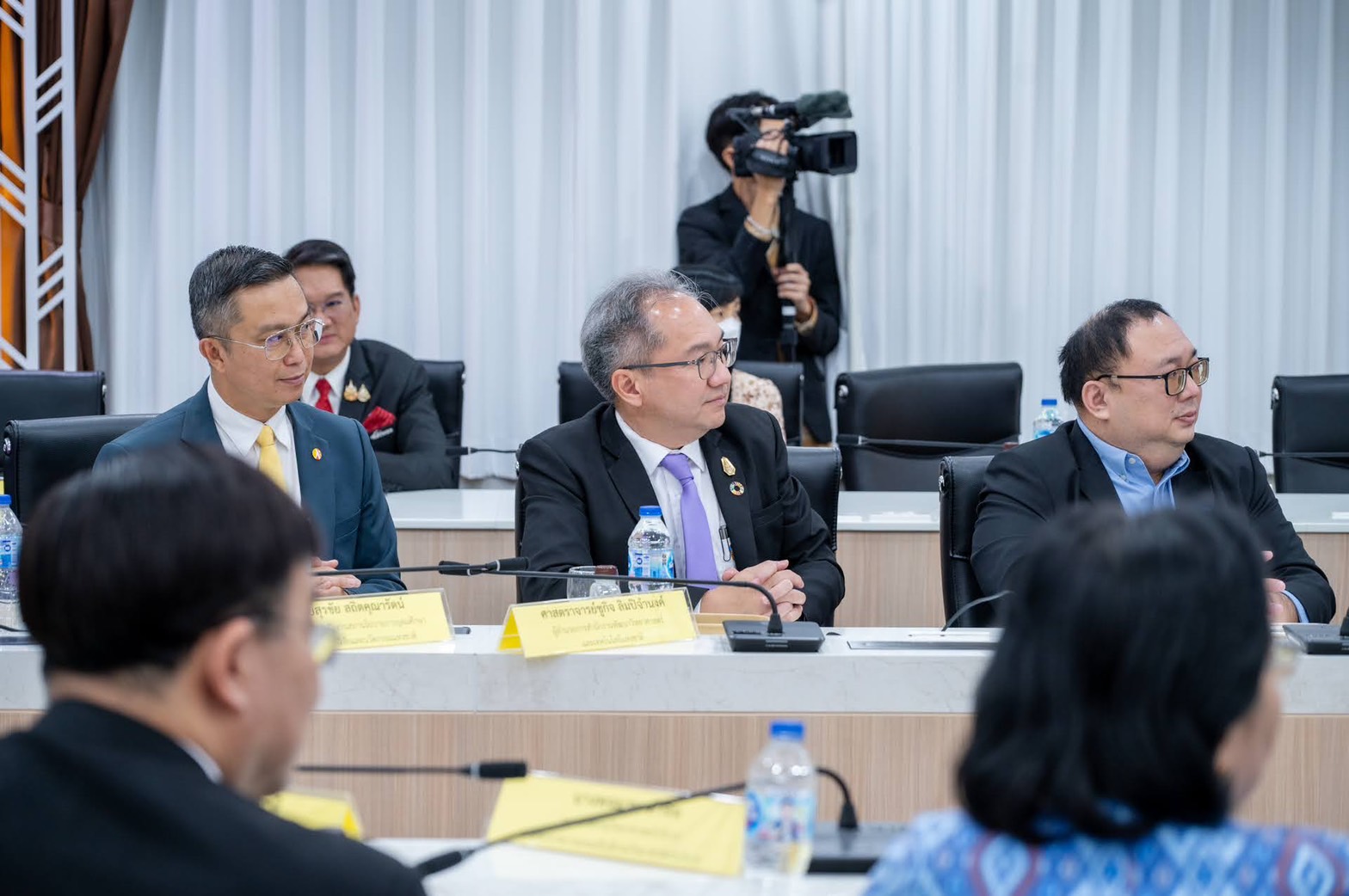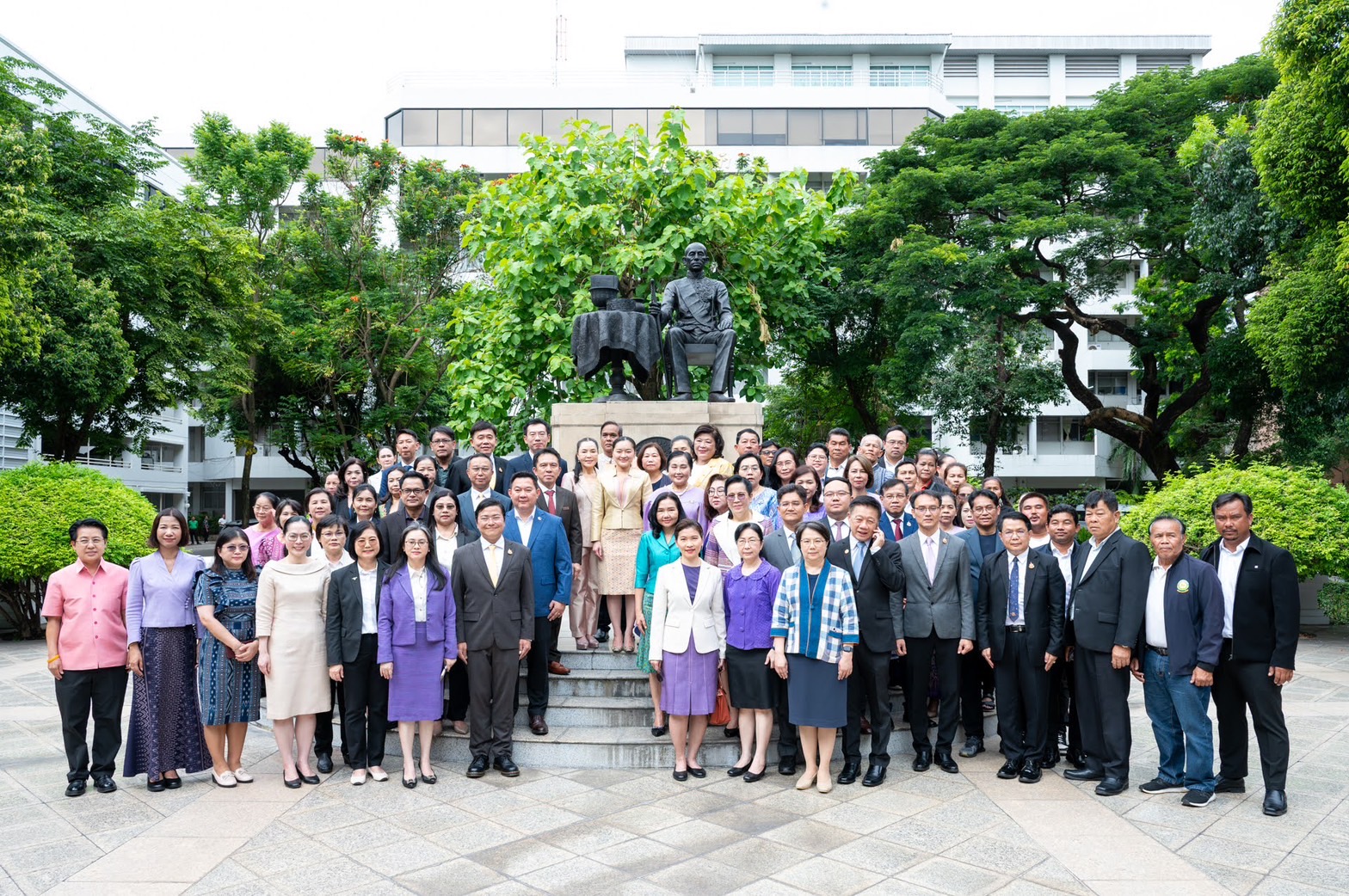On July 9, 2025, Miss Sudawan Wangsuphakijkosol, Minister of Higher Education, Science, Research and Innovation (MHESI), announced her policy directions for advancing the Ministry’s strategic goals. Present at the event were Professor Dr. Supachai Pathumnakul, Permanent Secretary of MHESI, and ministry executives. On this occasion, Professor Dr. Sukit Limpijumnong, President of the National Science and Technology Development Agency (NSTDA), led his executive team to welcome the Minister and attend the policy briefing at the meeting room on the 4th Floor of King Mongkut’s building, Office of the Permanent Secretary MHESI (Yothi).

In her address to the MHESI leadership, Ms. Sudawan emphasized her commitment to positioning higher education, science, research, and innovation as key mechanisms to enhance the nation’s competitiveness.
Ms. Sudawan stated that the ministry’s policies framework comprises two core components:
- Human Resource Development: This focuses on reducing disparities in access to higher education and enhancing the national workforce to meet the demand of current and future development. Initiatives includes scholarships program to support undergraduate through doctoral studies for academically gifted students, with 2,800 scholarships available. There is also a targeted scholarship scheme to develop skilled to develop skilled professionals in urgently needed sectors such as the semiconductor and advanced electronics industries.
- Advancement of Science, Research, and Innovation (SRI): The Minister emphasized the need for efficiency in managing research funds, — from allocation to the Program Management Units (PMUs) and from PMUs to universities and researchers — to ensure impactful outcomes.

In addition, she stressed the importance of applying SRI to strengthen the agricultural sector’s competitiveness. This includes transferring scientific and technological knowledge to help increase productivity, reduce costs, and improve quality. One example is the adoption of precision agricultural technologies, such as Smart Farming, particularly for Thailand’s key economic crops like rice, sugarcane, cassava, and rubber.

Moreover, the Minister highlighted the role of SRI in addressing and mitigating national crises such as PM 2.5 air pollution, flooding, and drought. She also in addressing and mitigating national crises the need to promote that generate new knowledge and support the development of modern industries. This includes attracting foreign investment and fostering domestic Deep Tech startup in the sector, such as next-generation automotive, future food, space economy, artificial intelligence (AI), semiconductors, and advanced electronics.

In alignment with this policy direction, NSTDA stands ready to support the strategic initiatives of MHESI with strong and continuous commitment. Examples of such support include the rapid diagnostic kit for cassava mosaic disease, which enables farmers to self-screen for infection and thereby reduce the risk of disease spread and crop loss; research and development of high-value extract from agricultural products. These efforts aim to elevate Thailand’s scientific and technological capacities towards sustainable national development.
